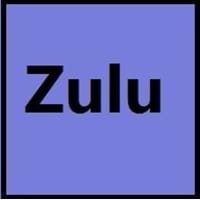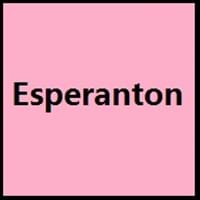Zulu and Esperanto
Countries
South Africa
East Asia, European Union, South America
National Language
South Africa
East Asia, European Union
Second Language
Botswana, Lesotho, Malawi, Mozambique, Swaziland, Zimbabwe
Central Europe, East Asia, Eastern Europe, South America
Speaking Continents
Africa
Asia, Europe, South America
Minority Language
Not spoken in any of the countries
Not spoken in any of the countries
Regulated By
Pan South African Language Board
Akademio de Esperanto
Interesting Facts
- The meaning of word "Zulu" means "Sky"and Zulu was the name of the ancestor who founded the Zulu royal line in about 1670.
- Zulu language has many loanwords borrowed from Afrikaans and English Languages.
- The most widely spoken constructed language in the world is Esperanto.
- Esperanto is an artificial international language.
Similar To
Xhosa Language
Not Available
Derived From
Not Available
Not Available
Alphabets in
Zulu-Alphabets.jpg#200
Esperanto-Alphabets.jpg#200
Writing Direction
Not Available
Not Available
Thank You
Ngiyabonga
Dankon
How Are You?
unjani
Kiel vi sanas?
Good Night
okuhle ebusuku
Bonan nokton
Good Evening
okuhle kusihlwa
Bonan vesperon
Good Afternoon
okuhle ntambama
Bonan posttagmezon
Good Morning
okuhle ekuseni
Bonan matenon
Please
Ngiyacela
Mi petas
Sorry
Ngiyaxolisa
Mi bedaŭras!
I Love You
Ngiyakuthanda wena
Mi amas vin
Dialect 1
Qwabe
Not present
Where They Speak
Gabon, South Africa
Not present
Dialect 2
central KwaZulu-Natal Zulu
Not present
Where They Speak
Georgia, South Africa
Not present
Dialect 3
Ndebele
Not present
Where They Speak
Zimbabwe
Not present
Speaking Population
Not Available
Native Name
isiZulu
Esperanto
Alternative Names
Isizulu, Zunda
Eo, La Lingvo Internacia
French Name
zoulou
espéranto
German Name
Zulu-Sprache
Esperanto
Pronunciation
Not Available
[espeˈranto]
Ethnicity
Zulu people
Not Available
Language Family
Niger-Congo Family
Indo-European Family
Subgroup
Benue-Congo
Not Available
Branch
Beatu
Not Available
Early Forms
urban Zulu
Proto-Esperanto
Standard Forms
Deep Zulu
Esperanto
Language Position
Not Available
Signed Forms
Not Available
Signuno
Scope
Individual
Individual
ISO 639 6
Not Available
Not Available
Glottocode
zulu1248
espe1235
Linguasphere
99-AUT-fg
51-AAB-da
Language Type
Living
Constructed
Language Linguistic Typology
Subject-Verb-Object
Not Available
Language Morphological Typology
Not Available
Agglutinative
All Zulu and Esperanto Dialects
Most languages have dialects where each dialect differ from other dialect with respect to grammar and vocabulary. Here you will get to know all Zulu and Esperanto dialects. Various dialects of Zulu and Esperanto language differ in their pronunciations and words. Dialects of Zulu are spoken in different Zulu Speaking Countries whereas Esperanto Dialects are spoken in different Esperanto speaking countries. Also the number of people speaking Zulu vs Esperanto Dialects varies from few thousands to many millions. Some of the Zulu dialects include: Qwabe, central KwaZulu-Natal Zulu. Also learn about dialects in South American Languages and North American Languages.
Zulu and Esperanto Speaking population
Zulu and Esperanto speaking population is one of the factors based on which Zulu and Esperanto languages can be compared. The total count of Zulu and Esperanto Speaking population in percentage is also given. The percentage of people speaking Zulu language is 0.16 % whereas the percentage of people speaking Esperanto language is Not Available. When we compare the speaking population of any two languages we get to know which of two languages is more popular. Find more details about how many people speak Zulu and Esperanto on Zulu vs Esperanto where you will get native speakers, speaking population in percentage and native names.
Zulu and Esperanto Language Codes
Zulu and Esperanto language codes are used in those applications where using language names are tedious. Zulu and Esperanto Language Codes include all the international language codes, glottocodes and linguasphere.





